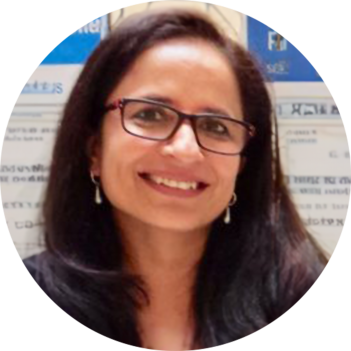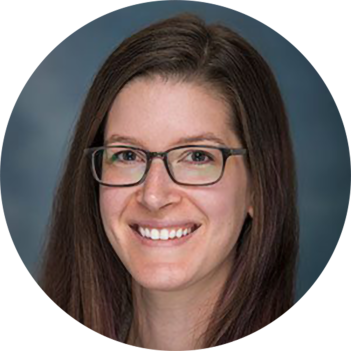2020 research seminars
Our first online seminar series covered a range of topics in computing education, from teaching programming to gender balance in the computing classroom. Watch recordings, read our summary blogs, and download speakers' slides.

The role of block-based programming in computer science education (1 December 2020)

Speaker: David Weintrop (University of Maryland)
Block-based programming is increasingly becoming the way that young learners are being introduced to the practice of programming and the field of computer science more broadly. In this talk, David presented results from his research into the strengths and drawbacks of block-based programming. This included sharing learner-reported perceptions on block-based programming, results from studies comparing block-based and text-based programming, and findings looking at if and how block-based instruction prepares learners for future text-based programming. He also presented results looking at the role of block-based tools in creating accessible and equitable computer science learning experiences. The goal for this talk was to help educators make informed decisions about if, how, and in what ways to incorporate block-based programming into their instruction.
Dr David Weintrop is an Assistant Professor in the Department of Teaching & Learning, Policy & Leadership in the College of Education with a joint appointment in the College of Information Studies at the University of Maryland. His research focuses on the design, implementation, and evaluation of accessible, engaging, and equitable computational learning experiences. He is also interested in the use of technological tools in supporting exploration and expression across diverse contexts including STEM classrooms and informal spaces. His work lies at the intersection of design, computational thinking education, and the learning sciences. David has a PhD in the Learning Sciences from Northwestern University and a B.S. in Computer Science from the University of Michigan. He spent one year as a postdoctoral researcher at the University of Chicago studying computer science learning in elementary classrooms prior to joining the faculty at the University of Maryland. Before starting his academic career, he spent five years working as a software developer at a pair of start-ups in Chicago.
PRIMM: encouraging talk in programming lessons (3 November 2020)

Speaker: Sue Sentance (Raspberry Pi Foundation)
PRIMM is an approach to structuring programming lessons that counters the known problem of novices writing programs before they are yet able to read them, and focuses on students talking about how and why programs work before they tackle editing and writing their own programs. PRIMM stands for Predict, Run, Investigate, Modify and Make. In this talk, Sue described how language and talk are emphasised in this socioculturally inspired approach to structuring programming lessons. She described a mixed-methods study which evaluated the effectiveness of PRIMM with around 500 students over a period of about ten weeks, and showed a positive impact on learning. She also considered how questioning in programming can be developed via a combination of the Block Model and the PRIMM approach. This talk will be of interest to you if you are interested in how beginners learn computer programming or have struggled with programming yourself.
Dr Sue Sentance is Chief Learning Officer at the Raspberry Pi Foundation and Visiting Fellow at King’s College London, UK. She researches the teaching of programming in school, teacher professional development, and physical computing. Her academic background is in computer science, artificial intelligence and education, and she is a qualified teacher and teacher educator. She currently has a leading role in a nationwide government-funded programme to bring high-quality computing education to all schools in England.
Formative assessment and feedback to support student learning in CS classrooms (6 October 2020)

Speaker: Shuchi Grover (Stanford University)
One can only improve what one measures. Formative assessments and feedback serve the important purpose of assessment for learning (as opposed to summative assessments, which are assessments OF learning). They provide feedback to both teachers and students on students’ learning and understanding (or the lack thereof). School classrooms teaching introductory CS need to work better to integrate of assessment and instruction—combining teaching with an ongoing measurement of student progress toward instructional goals. Formative assessments serve as probes into students’ understanding, and this, in turn, helps teachers identify student misconceptions as they are teaching. Formative assessments could take various forms—quick exercises such as multiple choice questions, small directed/coding projects (with rubrics), Parson’s problems, fixing buggy code, or reflection questions. Many teachers use formative assessment at the beginning or end of class as brief “entry tickets” or “exit tickets”. This seminar featured several examples of various forms of formative assessment that teachers at various grade levels can use.
Dr Shuchi Grover is a senior research scientist at Looking Glass Ventures and visiting scholar at Stanford University. A computer scientist and learning scientist by training, her work in computer science (CS) and STEM education since 2000 has spanned both formal and informal settings in the US, Europe, and Asia. Her current research centers on computational thinking (CT), CS education, and STEM+CT integration mainly in formal K-12 settings. Dr Grover is a recipient of several grants from the National Science Foundation to conduct research on curriculum and assessments in STEM learning and CT in varied PK-12 contexts. She also works at the intersection of learning, assessment, and big data analytics to shape future environments for deeper learning. She has authored over 100 well-cited scholarly and mainstream articles. She has advised the K-12 CS Framework as well as several K-12 school districts on CS implementation/integration. She serves as a member of the ACM Education Advisory Committee and on the editorial board of ACM Transactions on Computing Education. She earned a PhD in Learning Sciences & Technology Design from Stanford University (with a focus on Computer Science Education), Master's degrees in Education (Harvard University) and Computer Science (Case Western Reserve University), and Bachelor's degrees in Computer Science and Physics from BITS Pilani (India).
METRECC Instrument: sharing and contributing to international K-12 computing curricula and experiences (8 September 2020)

Speakers: Monica McGill (CSEdResearch.org), Keith Quille (Technological University Dublin), Rebecca Vivian (University of Adelaide) and Elizabeth Cole (University of Glasgow)
This seminar told the story of the development of METRECC, international collaboration, ongoing outcomes and how it relates to and can help teachers. As the discipline of K-12 computer science (CS) education evolves, international comparisons of curriculum and teaching provide valuable information for policymakers and educators. The MEasuring TeacheR Enacted Computing Curriculum (METRECC) instrument surveys teachers in K-12 schools about their implementation of CS curriculum to understand pedagogy, practice, curricula, resources and experiences in classrooms around the world. The open-source published data represents 244 teachers across seven countries (Australia, England, Ireland, Italy, Malta, Scotland and the United States) and the instrument has evidence of validity and reliability. The resulting METRECC protocol combines a country report template and a teacher survey that will provide K-12 teachers with a means to communicate their experiences.
Monica McGill, Ed.D. is currently the CEO & President of the non-profit CSEdResearch.org. Monica has been conducting computing education research for over a decade, with her research work now focusing on supporting K-12 computing education researchers and evaluators. She is also a CS Professor at Knox College in Galesburg, Illinois, USA.
Keith Quille, Ph.D. is a Lecturer at the Technological University Dublin, Ireland. Keith is a project lead a CSinc.ie where the research group specialises in CS education research (at primary, second and third-level), K-12 outreach and K-12 teacher professional development. Keith was also a second-level teacher for several years.
Dr Rebecca Vivian is a Research Fellow in the Computer Science Education Research Group (CSER) at The University of Adelaide. She is lead designer for CSER’s national K-12 Digital Technologies Education teacher training program and conducts research into STEM engagement, K-12 and tertiary CS education and teacher professional learning.
Elizabeth Cole is a PhD student at the University of Glasgow and an active member of the Centre for Computing Science Education. She brings a wealth of experience working in schools to her research. Elizabeth is currently working on computing science pedagogy in the early years of formal education.
Gender balance in computing: what the research says (28 July 2020)

Katharine Childs (Raspberry Pi Foundation)
Gender Balance in Computing is a 4-year programme of research to explore ways to increase girls’ participation in computing. The programme will investigate approaches to overcoming barriers to gender balance in computing through a number of different interventions carried out in primary and secondary (K-12) schools in England. This seminar presented a summary and synthesis of the current knowledge about gender equity in computing and examined key barriers which can prevent girls’ participation in the subject.
Katharine Childs works in the Research team at the Raspberry Pi Foundation and coordinates the Gender Balance in Computing project. Her background spans both computer science and learning theory, via her first-class honours degree in IT & Computing and Master's degree in computing education. Following 15 years of professional experience working in the IT sector, she went on to teach computing in primary (K-5) schools and deliver professional development activities for other primary teachers. Katharine writes, blogs and speaks about Computer Science Education research, with a particular focus on gender equity, inclusivity and physical computing.
Computational thinking test for beginners (14 July 2020)

Speaker: María Zapata Cáceres (Universidad Rey Juan Carlos, Madrid)
Assessing computational thinking is an indispensable element to consider in order to introduce it into school curricula. This talk described how a Beginners’ Computational Thinking Test (BCTt), aimed at early ages, was designed, submitted to a content validation process through expert judgement procedure and then administered to Primary School students. The results obtained from the BCTt were discussed.
María Zapata Cáceres qualified as an Architect at the Universidad Politécnica de Madrid and graduated in Computer Science Engineering at the Universidad Nacional de Educación a Distancia in Spain. She also holds Master's degrees in Virtual Environments (CSA) and Videogames Design and Production (UEM). She is currently pursuing her doctorate in Information Technology and Communications at the Universidad Rey Juan Carlos in Madrid, where she is a researcher and visiting professor in the Games Design and Development bachelor’s degree. Her main area of research includes video games as learning instruments for computer science both in individual and collaborative environments. She has more than 15 years of professional experience as an entrepreneur and independent professional with activities related to 3D design, video games, technology, and teaching.
Subgoal labels: reducing cognitive load in intro CS (30 June 2020)

Speaker: Briana Morrison (University of Nebraska-Omaha)
Cognitive load is the amount of resources utilised in an individual’s working memory during learning. This talk presented the use of one cognitive load-reducing mechanism: implementing subgoal labels within worked examples. The results of a quasi-experimental study using a subgoal learning framework throughout a semester-long programming course were discussed. Results included improved performance on formative quizzes, lower variance in exam scores and fewer students dropping or failing the course when learning with subgoals. Information on the next implementation steps, including how to use subgoal labels in your classroom was covered.
Dr Briana Morrison is an Assistant Professor at the University of Nebraska- Omaha. Briana worked at IBM for eight years as a software developer before transitioning to academia. She was an Asst. Professor at Southern Polytechnic State University (now Kennesaw State University) for 20 years in the CS department, was the Undergraduate Coordinator for the CS and SWE programs and helped found the Computer Game Design and Development degree program. Dr. Morrison earned her BS in Computer Engineering from Tulane, her MS from Southern Polytechnic and her PhD from the Georgia Institute of Technology. Briana currently has two NSF grants: IUSE: Collaborative Research: Developing and Assessing Subgoal Labels for Imperative Programming to Improve Student Learning Outcomes; and CNS: RET Site: Wearable Research for In-Service STEM Teachers (WRIST).
Unplugged computing and semantic waves (16 June 2020)

Speaker: Jane Waite (Queen Mary University of London)
This talk explored how Legitimation Code Theory, and, in particular, semantic waves, provides a useful way to understand what makes unplugged computing activities effective (or not) in the classroom. Jane gave an overview of the theory, discussed how it applies to unplugged activities, and described a case study where it was applied to a specific, widely used, unplugged activity. In particular, Jane showed that the published lesson plan follows a semantic wave, and suggested that semantic waves are useful both in developing and reviewing lesson plans around unplugged (and other) computing activities. They also have great potential in teacher training and continuous professional development of computing teachers.
Jane Waite works and studies at Queen Mary University of London. She is undertaking a part time PhD studying the teaching of design in K-5 (primary) programming activities. Jane also organises and runs teacher professional development and undergraduate modules on computer science education. Working with Sue Sentance she has researched PRIMM, the micro:bit, and pedagogy in general. With Paul Curzon she is investigating the use of Semantic Waves in the teaching of computer science. Jane is the Computing At School Research and University Working Group Chair running #CsEdResearchBookClub every first Thursday of the month.
Programming and mathematics: insights from research in England (2 June 2020)

Speaker: Dame Celia Hoyles (UCL Institute of Education, University College London)
In England, computing including a component of programming is compulsory for all students from age 6 to 16 years old. In this talk, Celia described the UCL ScratchMaths research project that developed a 2-year curriculum for 9-11 year olds in England aligned to the mandatory national computing and national mathematics primary curricula. ScratchMaths set out to support the teaching of carefully selected core ideas of computer programming alongside specific fundamental mathematical concepts, thus seeking to exploit potential for learning in both subjects by forging links between them. Celia presented the design features of this project, the findings from its external evaluation and internal monitoring, and the ongoing next steps.
Professor Dame Celia Hoyles was awarded a first-class honours degree in mathematics from the University of Manchester and holds a Master's and doctorate in mathematics education. She taught mathematics in London schools before moving into higher education. She became a professor at the Institute of Education, University of London in 1984. Celia has received many awards: first recipient of the International Commission of Mathematics Instruction (ICMI) Hans Freudenthal medal in 2004, and of the Royal Society Kavli Education Medal in 2011. She has received Hon Doctorates from the Open University, Loughborough University, Sheffield Hallam University and University of Bath. In 2016, she received the Suffrage Science Award for Communications in acknowledgement of her scientific achievements and ability to inspire others especially women into mathematics. Celia has given policy advice in mathematics as Chair of the Joint Mathematical Council of the United Kingdom 1999-03, founder member of the Advisory Committee on Mathematics Education (ACME) 2002-4, and the UK Government’s Chief Adviser for Mathematics 2004- 07. She served as the Director of the National Centre for Excellence in the Teaching of Mathematics (NCETM), 2007-13. Celia was President of the Institute of Mathematics and its Applications (IMA) (2014-15). Celia was made an Officer of the Order of the British Empire in 2004 and a Dame Commander in 2014.
Learning AI at school with Scratch and LearningML (19 May 2020)
Speaker: Juan David Rodríguez (Instituto Nacional de Tecnologías Educativas y de Formación del Profesorado – INTEF)
In this talk, Juan described LearningML, a tool he is developing together with the Kindergarten and Beyond and Lifelong Learning (KGB-L3) research group at the Universidad Rey Juan Carlos, Madrid. LearningML is intended to learn and teach the basis of machine learning, the most prevalent technique used nowadays in artificial intelligence applications. During the seminar, Juan performed a practical demo and showed how practical AI projects can help to foster computational thinking skills, adding new concepts, practices, and perspectives.
Juan David Rodríguez is a secondary education teacher and software developer. He works at Spain’s National Institute of Educational Technologies and Teacher Training (INTEF), a unit of the Spanish Ministry of Education and Vocational Training which has responsibility for the integration of ICT and teacher training in non-university educational stages. Juan is currently working on computational thinking skills development through practical artificial intelligence activities. He has started exploring how machine learning (ML), one of the most used techniques in current AI applications, can be taught at school. To do this, he is developing the educational tool LearningML which is designed to easily build ML models that can be used in Scratch programs.
Seminar materials
LearningML (available in English and Spanish!):
Website: learningml.org
Machine Learning editor: learningml.org/editor
Programming platform: learningml.org/scratch
Online and hybrid instruction for computer science classrooms (5 May 2020)

Speaker: Lauren Margulieux (Department of Learning Sciences, Georgia State University)
Online instruction comes in many forms to serve many purposes. It can be a powerful tool to add to your teaching practice, especially when mindfully paired with face-to-face instruction for a hybrid classroom. This talk described multiple goals that can be achieved through online instruction, how to mix it with face-to-face classrooms, and tips for making it successful.
Lauren Margulieux, PhD is an Assistant Professor of Learning Sciences at Georgia State University. She received her PhD from Georgia Tech in Engineering Psychology, the study of how humans interact with technology. Her research interests are in educational technology and online learning, particularly for computing education. She focuses on designing instructions in a way that supports online students who do not necessarily have immediate access to a teacher or instructor to ask questions or overcome problem-solving impasses.
